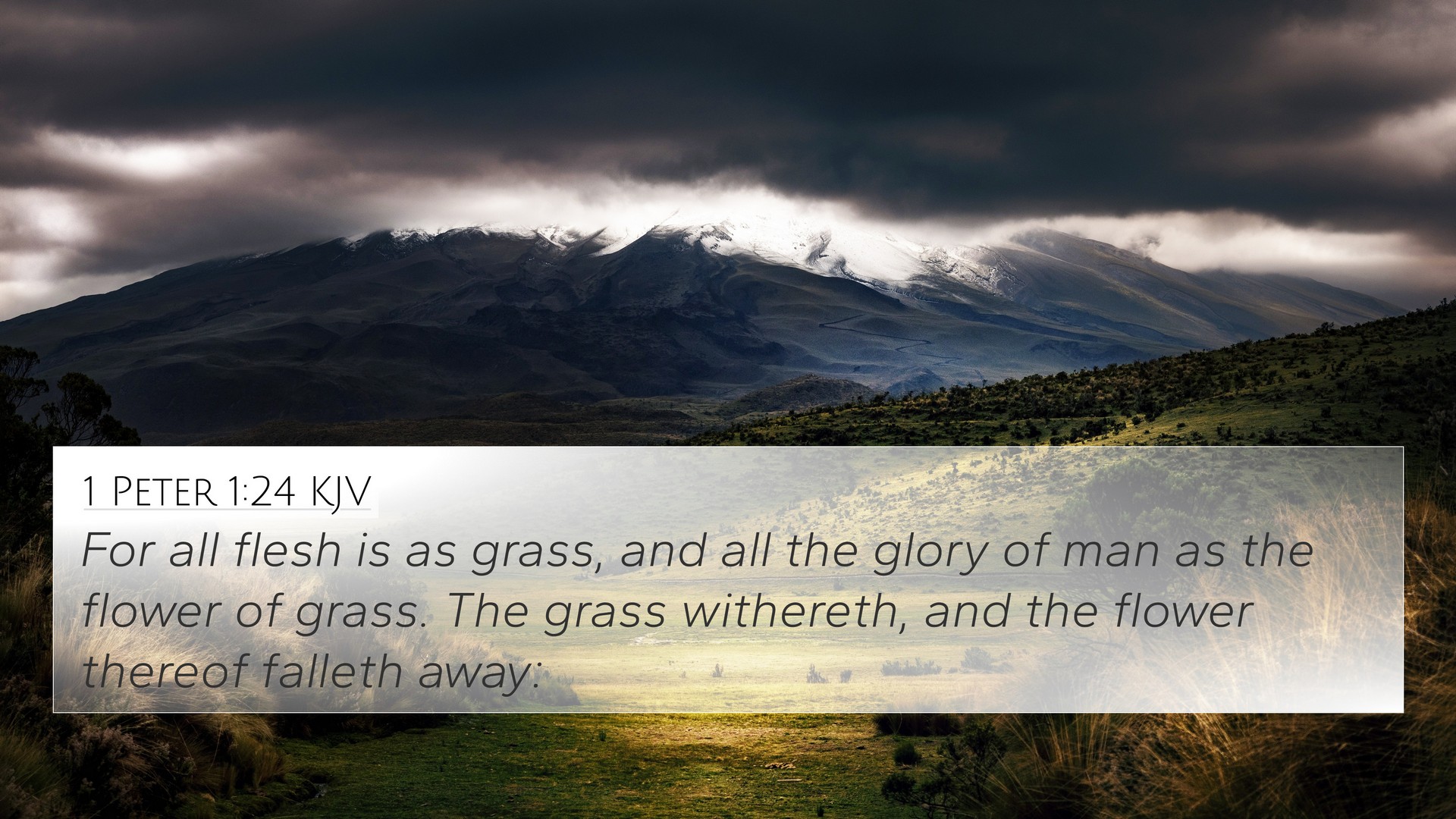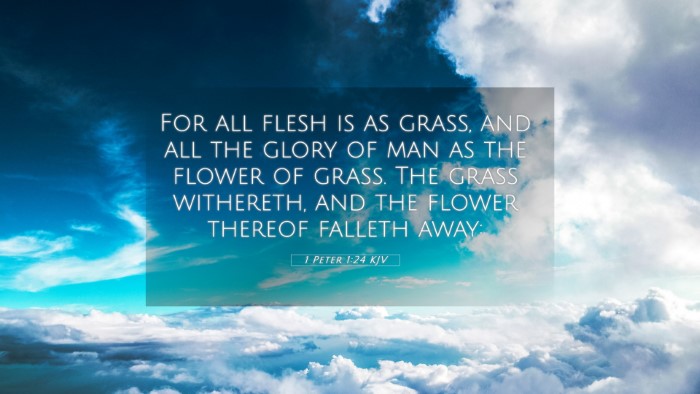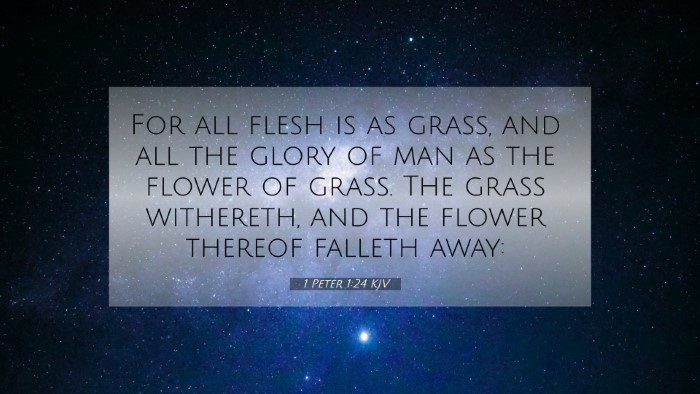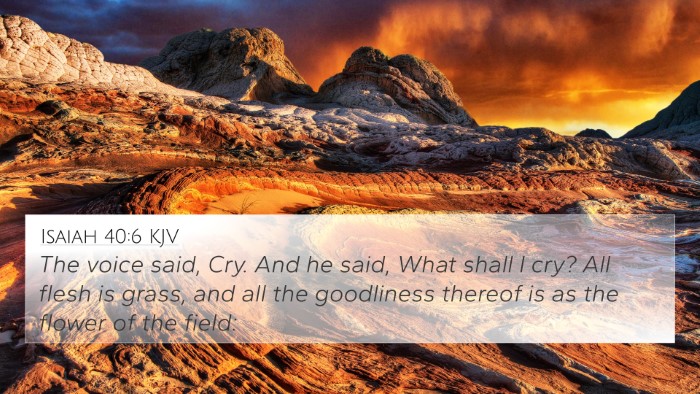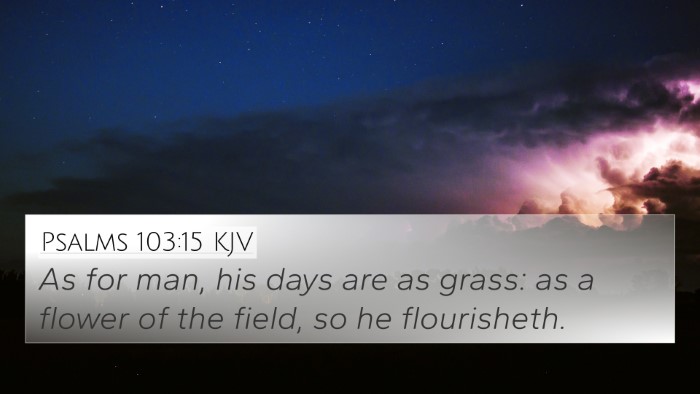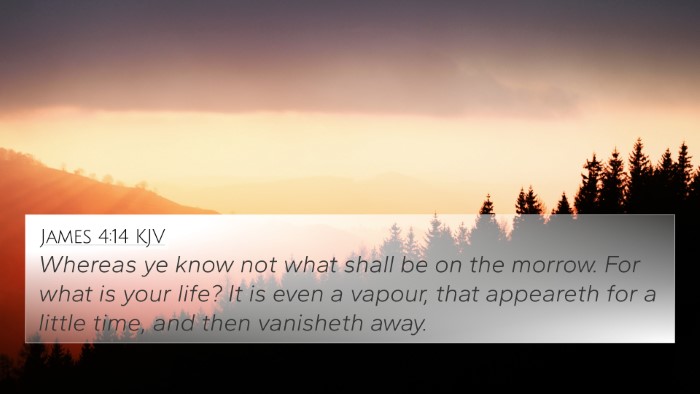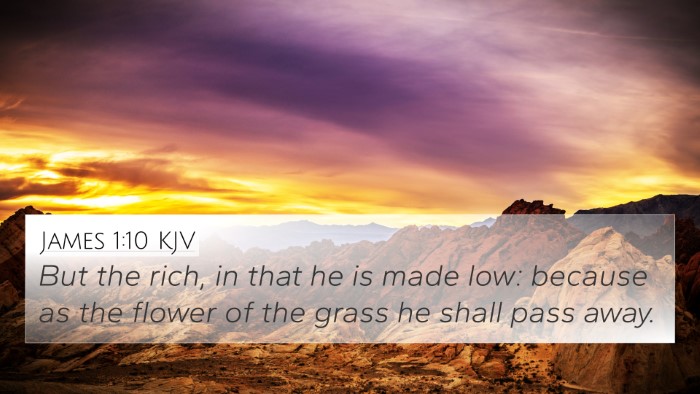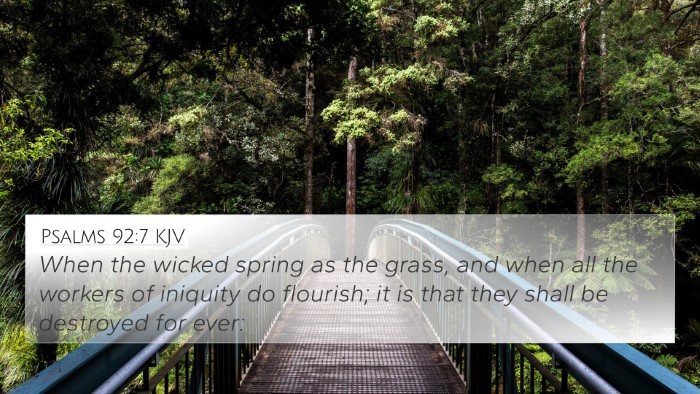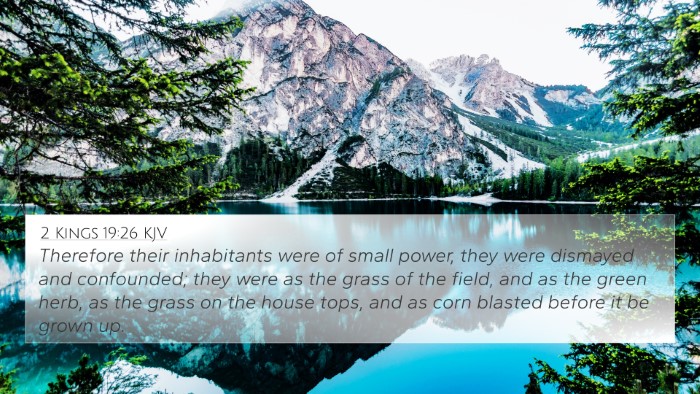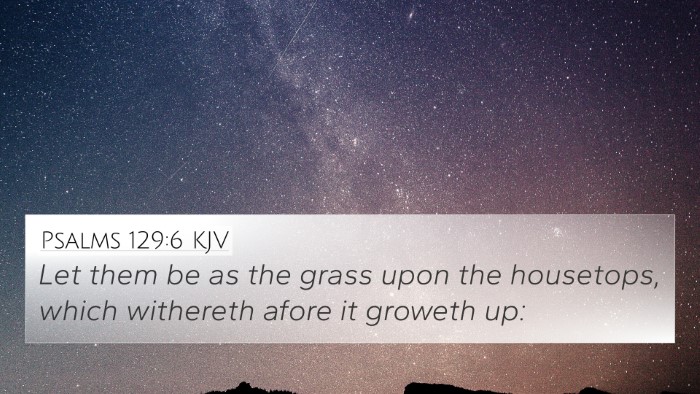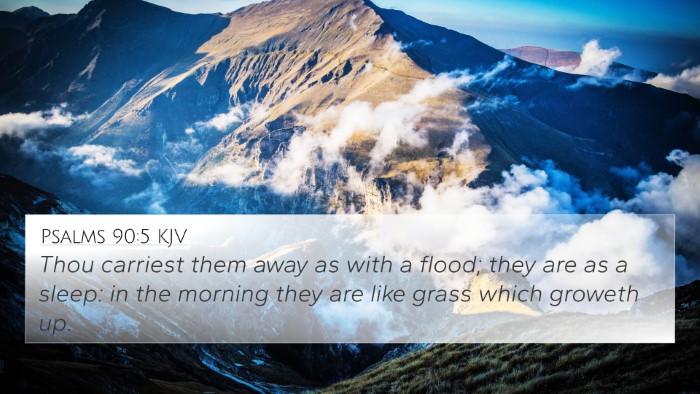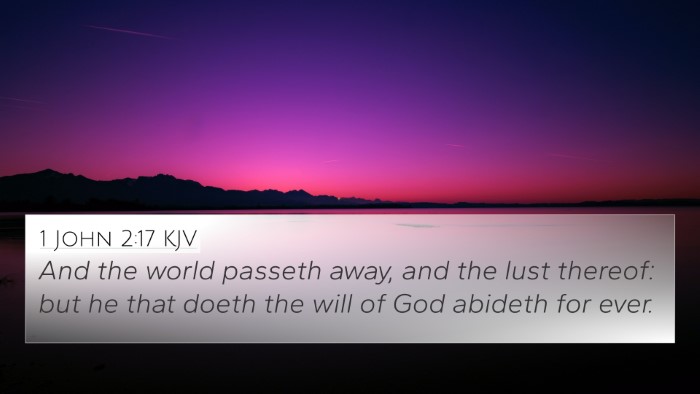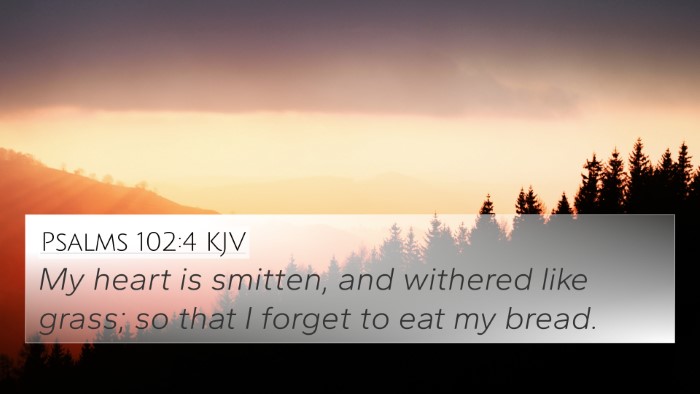Understanding 1 Peter 1:24
"For all flesh is as grass, and all the glory of man as the flower of grass. The grass withereth, and the flower thereof falleth away:" (1 Peter 1:24, KJV)
This verse illustrates the transitory nature of human life and glory, emphasizing the impermanence and fragility of worldly things.
Meaning and Interpretation
1 Peter 1:24 draws a powerful comparison using the imagery of grass and flowers to showcase the fleeting nature of human existence. Keeping the insights from chapter commentaries, we summarize the meaning of this verse:
- Matthew Henry: He explains that Peter uses this analogy to remind believers of the worthlessness of worldly pursuits compared to eternal significance. The imagery serves to emphasize that human life, despite its ambitions and achievements, is ultimately short-lived—much like grass that eventually withers away.
- Albert Barnes: Barnes highlights that, while the beauty and glory of humanity may seem significant, they do not endure. Man's splendor is temporary, and this verse calls for a focus on the eternal, underlining the need for reliance on the Word of God, which stands forever.
- Adam Clarke: Clarke emphasizes that this passage is a quotation from Isaiah, placing it in the context of prophetic literature that speaks to the human condition. He points out that the transient state of flesh serves as a reminder of the need for spiritual renewal through the Word.
Bible Cross-References
This verse can be cross-referenced with several other Biblical passages that reinforce its thematic elements:
- Isaiah 40:6-8: "The voice said, Cry. And he said, What shall I cry? All flesh is grass..." Here, the concept of the temporary nature of human life is echoed.
- James 1:10-11: "But the rich, in that he is made low: because as the flower of the grass he shall pass away." This verse draws a parallel between wealth and the fragility of human status.
- Psalm 103:15-16: "As for man, his days are as grass: as a flower of the field, so he flourisheth." The psalmist conveys a similar sentiment about the brevity of life.
- Matthew 6:30: "Wherefore, if God so clothe the grass of the field, which to day is, and to morrow is cast into the oven, shall he not much more clothe you?" This connects to our human need for assurance in God's care despite our fleeting existence.
- 1 Chronicles 29:15: "For we are strangers before thee, and sojourners, as were all our fathers: our days on the earth are as a shadow..." This hints at the transient nature of human life in God's sight.
- Isaiah 51:12: "I, even I, am he that comforteth you: who art thou that thou shouldest be afraid of a man that shall die..." which reminds us of the mortality of man.
- 2 Corinthians 4:16-18: "For which cause we faint not; but though our outward man perish, yet the inward man is renewed day by day." This verse speaks to the eternal while recognizing the impermanent nature of the flesh.
Thematic Bible Verse Connections
Throughout scripture, the themes of mortality, impermanence, and the promise of eternity are interconnected. Understanding these relationships can enhance our study:
- Human Fragility: The consistent portrayal of human life as fleeting encourages believers to seek enduring values and spiritual growth.
- God's Eternity: The contrast between human mortality and God's eternal nature invites deeper contemplation of faith and reliance on Scripture.
- Value of Spiritual Over Material: Repeated exhortations throughout the Bible to prioritize spiritual wealth over material possessions echo the sentiments found in 1 Peter 1:24.
Applying the Verse
As readers reflect on 1 Peter 1:24, it becomes essential to consider how these timeless truths apply to everyday life:
- Priority on Spiritual Growth: Believers are encouraged to focus on fostering spiritual attributes that will stand the test of time.
- Humility in Achievements: Recognizing that worldly successes are temporary can produce humility and promote a reliance on God instead of self.
- Encouragement to Others: In times of loss or hardship, sharing the message of hope found in Christ can uplift those facing their mortality.
Conclusion
1 Peter 1:24 is a poignant reminder of the transient nature of life and worldly glory. Through a careful examination of cross-references and thematic connections, one finds a rich understanding of the biblical message regarding the fleeting nature of human existence. In studying these elements, believers are better equipped to direct their lives according to values that endure beyond the temporal.
Tools for Further Study
Engaging with tools and resources can enhance your understanding of biblical connections:
- Bible Concordance: An essential tool for finding verses related to specific themes, helping you trace connections and deepen your study.
- Bible Cross-Reference Guide: Utilize guides to expand your understanding of related verses and their contexts.
- Comprehensive Bible Cross-Reference Materials: Resources that compile cross-referential information for thorough biblical study.
